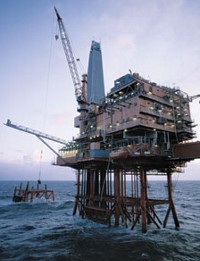Advertisement
Grab your lab coat. Let's get started
Welcome!
Welcome!
Create an account below to get 6 C&EN articles per month, receive newsletters and more - all free.
It seems this is your first time logging in online. Please enter the following information to continue.
As an ACS member you automatically get access to this site. All we need is few more details to create your reading experience.
Not you? Sign in with a different account.
Not you? Sign in with a different account.
ERROR 1
ERROR 1
ERROR 2
ERROR 2
ERROR 2
ERROR 2
ERROR 2
Password and Confirm password must match.
If you have an ACS member number, please enter it here so we can link this account to your membership. (optional)
ERROR 2
ACS values your privacy. By submitting your information, you are gaining access to C&EN and subscribing to our weekly newsletter. We use the information you provide to make your reading experience better, and we will never sell your data to third party members.
Energy
Katrina Renews Energy Debate
Lawmakers say U.S. needs to increase, diversify supplies of oil and natural gas
by Glenn Hess
September 12, 2005
| A version of this story appeared in
Volume 83, Issue 37
As congress began examining the energy policy repercussions from Hurricane Katrina last week, several lawmakers said the natural disaster underscores the need to both increase and diversify U.S. supplies of oil and natural gas.
"Hurricane Katrina exposed the harsh reality that we have been skating on thin ice when it comes to the concentration of energy infrastructure and production on the Gulf Coast," Senate Energy & Natural Resources Committee Chairman Pete V. Domenici (R-N.M.) remarked as he opened a hearing on the storm's impact.
"We need to examine whether we have concentrated our refining and distribution infrastructure too much in the Gulf region," added Sen. Lisa Murkowski (R-Alaska). She said there is a need to ensure that "our capacity is spread out over a larger geographic area so that a catastrophic event such as this one will not have such a negative impact."
Domenici said he would try to reach bipartisan agreements on several politically charged issues in the near future, including initiatives to increase refinery capacity and open more of the outer continental shelf to energy exploration. Drilling in federal waters is currently allowed off the shores of only four states: Alaska, Alabama, Louisiana, and Texas.
Bob Slaughter, president of the National Petrochemical & Refiners Association, told the panel that energy infrastructure is situated primarily in the western Gulf because "policymakers have restricted access to much-needed offshore oil and gas supplies in the eastern Gulf and off the shores of California and the East Coast."
The hurricane temporarily shut down nine Gulf refineries and halted most production of crude oil and natural gas in the region.





Join the conversation
Contact the reporter
Submit a Letter to the Editor for publication
Engage with us on Twitter